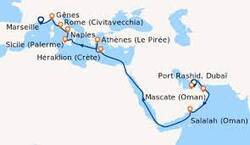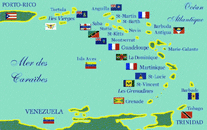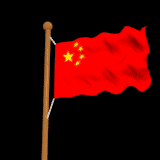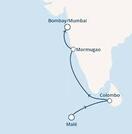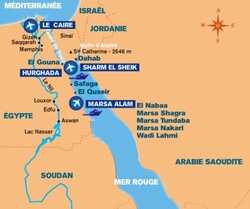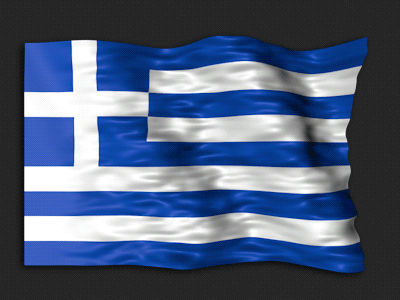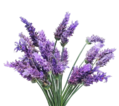-
En wallon:
(quand la premièr voyelle est entre parenthèses c'est une voyelle élidable,
elle est présente en début de phrase, ou après un mot se termiant par consonne audible; absente après une voyelle audible;
ex: «s(i)cole» (école) -> «li scole» (l'école), «ene sicole» (une école))
Comment? = k(i)mint ?Pourquoi? = pocwè?
Combien? = k(i)bén?
Où? = wice? (aussi: eyu?)
Quand ? = cwand
Quel/Quelle ? = li kék? / li kéne?
Quoi? = cwè?
Qui? = Kî?
à noter qu'on forme des mots indefinis à partir des interrogatifs:
wice (=où) -> ene sawice (quelque part) (aussi: ene sadju)
kî (=qui) -> ene sakî (quelqu'un)
cwè (=quoi) -> ene sacwè (quelque chose)
Coréen
Comment (eo-tteo-ke)
Pourquoi (wae)
Combien (myeot), (eol-ma)
Où (eo-di)
Quand (eon-je)
Quel (mu-seun)
Quoi (mu-eot) contracté en (mweo) à l'oral
Qui (nu-gu), (nu-ga)
Chinois
Comment (zen3 me)
Pourquoi (wei4 shen2 me)
Combien (ji3), (duo1 shao3)
Où (na3 li3)
Quand (shen2 me shi2 hou4)
Quel (na3 yi1)
Quoi (shen2 me)
Qui (shei2 ou shui2)
quechua de Cuzco (Pérou) :
Comment? = imayna
Pourquoi? = imamanta
Combien? = hayk'a
Où? = may
Quand ? = hayk'aq
Quel/Quelle ? = mayqin
Quoi? = ima
Qui? = pi
Penjabi:
qui ?: KauN?
que/quoi?: Kee?
où? :kithay?
pourqoi?: kiun?
quand?: kadon?
quel prix?:kinnaa?
combien?: kinnay?
à qui?: kis daa?
 1 commentaire
1 commentaire
-
tchèque
jak?
proc?
kolik?
kde? (on y est) / kam? (on y va) / odkud (d'où on vient)
kdy?
ktery? (m) / ktere? (n) / ktera? (f)
slovaque
ako?
preco?
kolko?
kde? / kam? / odkial?
kedy?
ktory? (m) / ktore? (n) / ktora? (f)
en breton
Comment ? Penaos
Pourquoi ? Perag
Combien ? Ped (pour des choses, toujours suivi du singulier), Pegement (pour de l'argent)
Où ? Pelec'h
Quand ? Peur, pegoulz ou pevare, selon les regions
Quel/Quelle ? Peseurt
en croate:
Comment ? - kako?
Pourquoi ? - Zašto?
Combien ? - Koliko?
Où ? - Gdje? / Kamo? (mouvement)
Quand ? - Kada?
Quel/Quelle ? - Koji/Koja/Koje (neutre)?
en tagalog:
Pourquoi ? bakit
Combien ? ilan, magkano, gaano
Où ? saan, nasaan
Quand ? kailan
en Alsacien d'ici, de là et d'ailleurs :
comment ? : wie / wia ?
pourquoi ? : werõm / wãrõm / worõm ?combien ? : wieviel / wãs ?
où ? : wô / wû ?
quand ? : wenn / wãnn / wann ?
quel / quelle ? : weller / waller / wellie / wallie / well / wall / wãs fer e
En Allemand standard :
comment ? : wie ?
pourquoi ? : warum ?
combien ? : wieviel ?
où ? : wo ?
quand ? : wenn / wann ?
quel / quelle ? : welch / welcher / welche / welches ?
Wieviel (Uhr ist es) ? (Quelle heure est-il ?)
was für ein ... / eine ... ? (Quelle espèce de ... ?)
Islandais:
Comment ? = Hvernig / Hve?
Pourquoi ? = Af hverju?
Combien ? = Hve mjög? / Hve miklu? / Hve mikill? / Hve margur / Hve margir?
Où ? = Hvar?
Quand ? = Hvenær?
Quel/Quelle ? = Hver? / Hvor?
En latin
Comment ? Quomodo ?
Pourquoi ? Cur ?
Combien ?
- devant un indénombrable : quantum + gén.
- devant qqhcose qui se mesure : quantus, a, um
- devant qqchose qui se compte : quam multi, ae, a ; quot
Où ?
- origine : unde ?
- statique : ubi ?
- direction : quo ?
- lieu où l'on passe : qua ?
Quand ? Quando ?
Quel/Quelle :
- qui, ae, id ? (qui miles = quel soldat ?)
- qualis, is, e ? (qualis homo = quel genre d'homme ?)
En grec ancien
Comment ? πως ;
Pourquoi ? τί ;
Combien ? πόσον, πόσου, πόσος/η/ον ;
Où ?
- origine : ποθεν ;
- statique : που ;
- origine : ποι ;
- lieu où l'on passe : πη ;
Quand ? πότε ;
Quel/Quelle τις/τις/τι ;
(en grec, ancien comme moderne, le point d'interrogation a la forme de notre de point-virgule).
en schwyzertütsch
Comment ? wie, wien ?
Pourquoi ? warum, wiso ?
Combien ? wivil ?
Où ?
- lieu : wo, woon ?
- direction : woane, wohi ?
- lieu où l'on passe : wodure ?
Quand ? wänn ?
Quel/Quelle
- lequel de plusieurs : wele, weli, weles ?
- quel sorte de : was für aine ? Fürigi ?
En breton morbihannais
Comment ? = pénos?
Pourquoi ? = perèk?
Combien ? = pégemet?
Où ? = men? men?
Quand ? = pegourz?
Quel/Quelle ? = pèh?
En irlandais:
Comment ? = cad é mar? (N), conas (S), cén chaoi (Connemara)
Pourquoi ? = cad chuighe (N), cad ina thaobh (S), cén fáth (Conn.)
Combien ? = cá mhéad?
Où ? = cá háit?, cén áit?
Quand ? = cá huair?, cén uair?
Quel/Quelle ? = cad é an...?, cé an...?
En Silesien:
- comment - jak
- pourquoi - czamu (ne pas 100% sur)
- combien - wiela
- où - kaj
- quand - kiedy
- quel/le - kiery, -a, -e,
en croate, serbe et monténégrin
Comment >> kako (како)
Pourquoi >> zašto (зашто)
Combien >> koliko (колико)
Quand >> kad / kada (кад)
Quel >> koji (који)
Où >> gde / gdje / dje / di
Quoi >> šta / što (шта / што)
Tamij ( tamil / tamoul)
Comment ( yèpaDi)
Pourquoi ( yééN)
Combien ( yèvalaveu) ( yèthanaï)
Où ( yènguéé)
Quand ( yèpoodeu)
Quel/quelle/quoi ( yèNNê) ( yédeu )
Hindi
Comment ( kaisé)
Pourquoi (kyo(n))
Combien ( kitna) m ( kitni) f ( kitné ) pl
Où ( kaha(n))
Quand ( djab)
quel/quelle/quoi ( kaun) कया ( kyaa)
Néerlandais :
Comment : Hoe ?
Pourquoi : Waarom ?
Combien : Hoeveel ?
Où : Waar ?
Quand : Wanner ?
Quel / quelle / quoi : Welk ? / wat ?
 votre commentaire
votre commentaire
-
Comment ?
Pourquoi ?
Combien ?
Où ?
Quand ?
Quel/Quelle ?
PORTUGAIS
Comment ? = como?
Pourquoi ? = porquê?
Combien ? = quanto, quanta, quantos, quantas?
Où ? = onde (situation présente), aonde (vers où), de onde (d'où)
Quand ? = quando
Quel/Quelle ? = que (qual = lequel, laquelle)
en polonais:
Comment ? - jak? /ïak/
Pourquoi ? - dlaczego? /dlatchego/
Combien ? - ile?
Où ? - gdzie? /gdie/
Quand ? - kiedy?
Quel/Quelle ? - jaki/jaka? /ïaki - ïaka/
En Basque :
Comment ? = Nola ?
Pourquoi ? = Zergatik ? (à cause de quoi ?) / zertako ? (dans quel but ?)
Combien ? = Zenbat ?
Où ? = Non ?
Quand ? = Noiz ?
Quel/Quelle ? = Zein ?
En Castillan :
Comment ? = ¿ Cómo ?
Pourquoi ? = ¿ Por qué ?
Combien ? = ¿ Cuánto(s) ?
Où ? = ¿ Dónde ? (adónde dans le cas d'un déplacement)
Quand ? = ¿ Cuándo ?
Quel/Quelle ? = ¿ Cuál ? / ¿ Qué ?
En Vietnamien :
Comment ? = thế nào ?
Pourquoi ? = tại sao ?
Combien ? = bao nhiêu ?
Où ? = ở đâu ?
Quand ? = khi nào ?
Quel/Quelle ? = gì nào ?
En Japonais :
Comment ? = (dou)
Pourquoi ? = (naze)
Combien ? = (ikura)
Où ? = (doko)
Quand ? = (itsu)
Quel/Quelle ? = (dono / dochira)
En Anglais :
Comment ? > How ?
Pourquoi ? > Why ?
Combien ? > How much ? / How many ?
Où ? > Where ?
Quand ? > When ?
Quel/Quelle ? > Which ?
En Espagnol :
Comment ? > Cómo ?
Pourquoi ? > Porqué ?
Combien ? > Cuánto ?
Où ? > Donde ?
Quand ? > Cuando ?
Quel/Quelle ? > Cuál ?
En Espéranto :
Comment ? > Kiel ?
Pourquoi ? > Kial ?
Combien ? > Kiom ?
Où ? > Kie ?
Quand ? > Kiam ?
Quel/Quelle ? > Kio ?
Finnois
comment: kuinka, miten
pourquoi: miksi
combien: kuinka paljon, paljonko
où: missä
quand: milloin, koska
quel/quelle: kumpi (si on a le choix entre deux objets), mikä (si plus de deux objets)
Russe
comment: как
pourquoi: почему
combien: сколько
où: где
quand: когда
quel/quelle: какой/какая
DANOIS
Comment ? Hvordan?
Pourquoi ? Hvorfor?
Combien ? Hvor meget? (indénombrable) Hvor mange? (dénombrable)
Où ? Hvor?
Quand ? Hvornår?
Quel/Quelle ? help!!! det ved jeg ikke!
Suédois
comment: hur
pourquoi: varför
combien: hur mycket (indénombrable), hur många (dénombrable)
où: var
quand: när
quel/quelle: vilken (genre commun), vilket (neutre)
Estonien
comment: kuidas
pourquoi: miks
combien: kui palju, mitu
où: kus
quand: millal
quel/quelle: missugune, milline, kumb
Same (lapon)
comment: mo
pourquoi: manin
combien: man ollu
où: gos
quand: go
quel/quelle: mii
En Hébreu :
Comment ? = אֵיךְ (eikh)
Pourquoi ? = לָמָּה (lamma)
Combien ? = כָּמָּה (kamma)
Où ? = אֵיפֺה (eifo)
Quand ? = מָתַי (matai)
Quel/Quelle ? = אֵיזֶה (eize)
en hongrois:
Comment ? = hogyan
Pourquoi ? = miért (ou plus familier: mért)
Combien ? = hány (nombre précis: 2, 3...), mennyi (nombre approximatif)
Où ? = hol (où l'on est), hová ou hova (où l'on va)
Quand ? = mikor
Quel/Quelle ? = milyen (quel genre), melyik (lequel)
Roumain:
Comment ? = Cum?
Pourquoi ? = De ce?
Combien ? = Cât / Câtă / Câţi / Câte?
Où ? = Unde? / Încotro?
Quand ? = Când?
Quel/Quelle ? = Care?italien:
Comment ? come?
Pourquoi ? perché?
Combien ? quanto?
Où ? dove? (uniquement pour le lieu, le temps c'est "in cui"=dans lequel)
Quand ? quando?
Quel/Quelle ? quale (lequel, laquelle....il quale, la quale...(ou il cui, la cui...)
grec moderne:
Comment ? pos πώς
Pourquoi ? yati γιατί
Combien ? posso πόσο
Où ? pou πού
Quand ? pote πότε
(n'est pas Caro?)
 1 commentaire
1 commentaire
-
Occitan: ajuda
Spanish: ayuda
Breton : sikour
Danish : hjælp
Hungarian: Segítség!
CROATIAN: upomoć! and pomoć -->(regular noun)
PORTUGUESE: ajuda
ROMANIAN: ajuta
CZECH: nápověda
CATALAN: ajuda
GERMAN: hilfe
POLISH: pomoc
RUSSIAN: pomoś'
SLOVAK: pomoc
SWEDISH: hjälp
talian Aiuto
Neapolitain
Aiutu
Piedmontese
Agiut
Arabic
ﻦﻭﻋ
مساعدة
In Basque :
aide (noun) = laguntza
aider = langundu
Malagasy : aide = fanampiana (funampeen)
Au secours = vonjeo ! (vounjeoo)
espagnol ¡Socorro!
in hindi:
(aide=assistance) : sahaayataa
(aide=secours) : madd
(Au secours ! = A l'aide ! ) : bachaao !
Gaelic
Cuidiú
Tamil
Udavee
Persian
کمک
Albanian: ndihme
Turc
au secours = yardim etmek (the prononciation is "yardum atmek")
à l’aide = yardim
grec moderne: βοήθεια
Thai :
ช่วยด้วย
(Chuay-Duay)
romanian = ajutor! [a-juutor] (ajuta =
czech = pomoc [pomot's] ( napoveda = lifeline )
polish = pomoc [pomoots]
slovak, 'twas OK; pronounced as in czech
quechua de Cuzco (Pérou) : Yanapawáy!
En sicilien / in Sicilian: Ajutu!
En maltais / in Maltese [Malti]: Ajjut!
En islandais / in Icelandic: Hjálp!
croatian & Serbian:
Upomoć! Упомоћ! (just serbian)
potugais:
Socorro! , or Ajude-me!
Bulgare :
помощ !
hebreu: "Hatzilu"
הצילו!
sanscrit: upakārah.
āśrayam.
Japonais:
(tedasuke),
grec:
Βοήθεια! [Voithia]
allemand:
au secours: help! ou hulp!
aide: hulpQuechua de Cuzco (Pérou) :
A l'aide ! et Au secours ! : Yanapaway!
En coréen :
au secours : (sal-lyeo ju-se-yo) littéralement quelque chose comme "faites-moi vivre"
aide (do-um)
aidez-moi : (do-wa ju-se-yo)
 votre commentaire
votre commentaire











